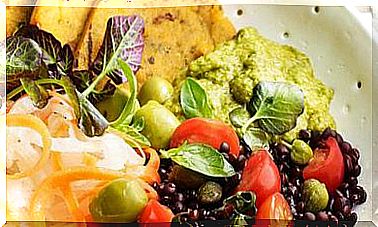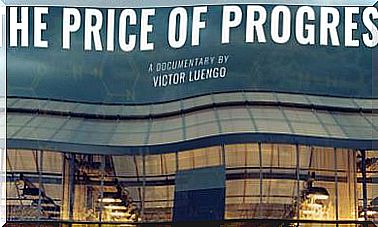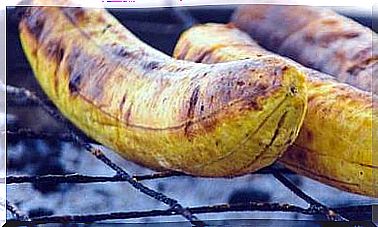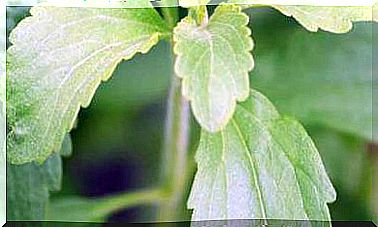There Is A Diet That Respects The Earth And People
Every food we put in our mouths has a story behind it. Knowing it helps to choose the most suitable for health and also those whose production is more respectful with nature.
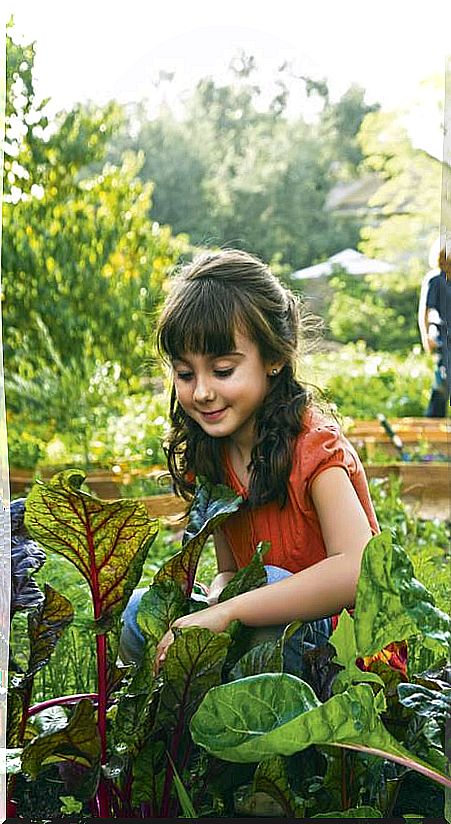
The simple gesture of putting a piece of food in the mouth can have more or less beneficial effects on health, but also affect the development of an agricultural community, the fertility of the land, environmental pollution or the wealth of a population .
Artisanal or organic cheese does not have the same nutritional value as that produced with crowded cattle. Eating strawberries grown by a local producer does not have the same impact on the environment as opting for others that have traveled by plane.
Choosing local, seasonal vegetables does not generate the same wealth as buying imported vegetables. Nor does it have the same consequences to consume cocoa from fair trade cooperatives as from industries that use cheaper human resources, such as the exploitation of children.
Feeding with a conscience
Eating with a conscience means taking these issues into account and opting, if possible, for fresh, seasonal, local, organic, fair trade or sustainably produced food.
But, in addition, it also means eating with the five senses, favoring a calm environment, and contributing to a way of life that is more respectful with oneself, with nature and with other people. Let’s see the main points that can be considered to opt for a healthy, fair and respectful nutrition with the planet.
Bet on organic food
First of all, it is important to know that organic food is obtained by traditional methods that preserve biodiversity and benefit the environment. It is, therefore, healthier food for the person but also for the planet.
When someone buys an organic product they are investing in health, the environment, the future and in solidarity with farmers.
One third of carbon dioxide emissions, the main gas that causes the greenhouse effect (climate change), are related to food production, and intensive farms are one of the most polluted industries that exist.
Consuming organic food improves the environmental impact by protecting the quality of the soil, helping to curb erosion, helping to restore air and water quality, promoting biodiversity and consuming less energy than with conventional food production.
In addition, the autonomy of the producer is benefited and rural development is favored, since it promotes the creation of work in the field. When choosing these foods, the interests of small producers are combined with those of consumers through cooperatives or other initiatives.
In this way people with common interests come into contact who can establish good, sustainable and beneficial relationships for all. Ecological agriculture also enriches the country because it encourages local and seasonal trade.
Organic food maintains the health of the soil
The use of fertilizers and pesticides has made it possible to increase crop yields, but over the years it has been proven that this agricultural model weakens the health of the soil, which ceases to be a living ecosystem to become an inert surface.
To restore its quality it is necessary to encourage microbial life. The most suitable techniques are the traditional ones, such as crop rotation, growing legumes that help fix atmospheric nitrogen in their roots thanks to the bacteria of the genus Rhizobium, or applying decomposed organic matter (compost). In this way, it is possible to replace the nutrients in the soil, maintain the microbial balance and help preserve its spongy texture.
In conventional agriculture, it is usually fertilized with synthetic fertilizers containing nitrogen, phosphorus or potassium, for example. But this replacement is incomplete since plants also need trace elements, in minimal quantities , which are more common in organic fertilizers.
Organic food contains more nutrients
There are several studies that support the richness of nutrients that organic foods present compared to conventional foods. A study led by Carlo Leift, agronomist, doctor in microbiology and professor at the University of Newcastle (United Kingdom), as well as several studies at the University of Valencia led by Dr. Dolores Raigón, have shown that organic food has a higher concentration of antioxidant substances, which prevent the cellular aging of the organism and exert a certain protective effect against various diseases.
They also have a higher mineral content, a higher vitamin content and a higher proportion of polyunsaturated fatty acids of the omega-3 family.
Conventional foods, on the other hand, can be rich in nitrates, substances that turn into nitrites and that can turn into nitrosamines, with a proven carcinogenic effect.
It has also been studied that they are products poor in nutrients such as magnesium, which benefits the circulatory system, and rich in phosphates, which enhance decalcification processes. In general, these are foods with higher water and pesticide content.
According to a study carried out by the Inserm (Institut National de la Santé et de la Recherche Médicale) of Marseille, organic fruit and vegetables ensure fewer nitrites (69%), more magnesium (49%), more vitamin C (27% ), more amino acids (35%) and more iron (21%), among others. Ultimately, the basket is filled with more nutrients and fewer pesticides and other chemicals.
Why organic food is more expensive
Organic food can be 25% more expensive than conventional food, but it must be taken into account that the price of conventional food does not include the environmental effects of its production or the conditions in which the workforce is found. If all these factors were taken into account when comparing prices, the result would be very different.
The different ecological seals verify that the product meets the established standards to be considered ecological. It ensures the restriction in the use of synthetic pesticides, the absence of genetically modified organisms and that the product has been produced using natural resources responsibly.
But the endorsement is not everything because the certification has a cost, that is, the farmer has to pay to be audited by the certifying company. There are farmers who grow organically but do not have enough means to obtain certification. On the other hand, the regulation does not take into account aspects such as the degree of mechanization or out-of-season cultivation, which some producers consider important in order to make agriculture truly sustainable.
More local products
For responsible consumption it is also important to give preference to local and seasonal foods. As far as possible, products of distant origin should be avoided which, in addition to having lost part of their vitamins and minerals during storage, have required high energy consumption for their transport and have produced emissions of carbon and toxic gases.
In fact, claiming the right to eat quality, fresh, seasonal, healthy and chemical-free food is the goal of Slow Food, a movement born in Italy whose motto is “good, clean and fair”. Many restaurants have joined this movement with the “Km 0” initiative.
These are restaurants that offer food from small producers. They thus favor sustainable agriculture and knowledge of local foods, and avoid the production of carbon dioxide due to transport, maintenance and packaging.
But favoring the local does not imply giving up imports. In some cases, it is even an ethical question. It would not make sense to grow coffee where the climate barely allows it, to replace, for example, that traditionally produced in Costa Rica by local farmers.
In recent years, much has been said about the nutritional benefits of soy, a low-cost food that is used as feed for livestock. This boom in soybeans has expanded its cultivation with transgenic seeds, and for this reason tropical forests have been deforested.
In Europe, the consumption of soy from America or Asia involves energy expenditure in transport that can be saved by consuming local legumes. In the case of wanting to enrich the diet with soy, it is always advisable to consume it from organic sources and alternate it with the consumption of other legumes.
Essential measure: avoid meat
In some cases, changing eating habits can go a long way to alleviate world hunger and fight climate change An example: to produce a ration of beef you need the same land area as to produce 16 rations of legumes and cereals.
Producing a kilo of meat involves using 300 liters of water, while 1 kilo of wheat requires 30 liters of water. In addition, the industrial production of meat pollutes the environment with slurry and medicines.
By consuming less meat, more grain would be available to alleviate world hunger. That is why it is advisable to moderate the consumption of meat and enhance the consumption of vegetable proteins, especially legumes.
Sustainable fish
Fish are caught and consumed at a much faster rate than they need to reproduce. The consequences of overfishing are already very visible in many regions of the planet, such as Senegal or Morocco.
In the last 20 years , the equivalent of eight football fields a day has been destroyed on our coastline, and more than half of the coastal protected areas are threatened.
To restore the health of the oceans, it is necessary to protect the seas and oceans by creating Marine Reserves. But the role of consumers and supermarkets is also essential for consumption to be reduced.
On the other hand, it must be taken into account that on occasions globalized agriculture and fishing have generated the plundering of the natural assets of developing countries. As Gustavo Duch denounces in his book What to Swallow, in Lake Victoria, in Africa, tons of perch are extracted daily for European consumption, while two million people go hungry on the banks of the lake.
Fair food exchanges
Culture is not just local products. It is also interesting to nourish yourself with the culture of other countries. But with a conscience. If we want a quality coffee or chocolate, if possible it is preferable that it be one produced by cooperatives that seek to improve the living conditions of the locals.
Fair trade food often carries the Fairtrade seal, registered by the FLO-cert (an independent auditor). The seal informs the consumer that the product complies with the international Fair Trade standards of FLO (Fairtrade Labeling Organizations).
It offers guarantees, among other things, that producers have received a minimum amount that has allowed them to cover the costs of sustainable production, in addition to the payment of a premium that allows true community development (schools, health centers, improvement of roads, purchase of land, etc.).
Other fair trade stamps, such as the Hand in Hand of the German brand of organic products Rapunzel, also guarantee that there has been a fair exchange with the producers. The initiative was born in 1987 to deal with the Bolivian cooperative El Ceibo, which produces coconut, and today it has been extended to 14 members.
Fair trade products not only ensure that producers can live off their work and prosper to improve their living conditions but that they can also respect the environment.
The importer who buys a fair trade product is bound to pay a minimum price and to enter into long-term contracts, which allows producers to plan without fear, with certain guarantees that their projects will be able to be carried out.
a vital Philosophy
Eat healthy and sustainable
In order to eat in a healthy and sustainable way, it is therefore important to try to consume local products, but also fair trade food. Also base the diet on vegetables, whole grains and legumes, reducing meat and fish.
Each of us should make an appropriate selection of the products we consume, within the possibilities offered by the market and without forgetting individual preferences. We are free to choose but we must know that what we choose has consequences.
Our ancestors often did not have that possibility, but they knew how to create a diet – the Mediterranean – healthy for the body and respectful of the landscape. We have been moving away from that harmony and on many occasions we do not know what we eat. That is why journalist and specialist writer Michael Pollan advises not to eat anything that our great-grandmother could not recognize as food.

